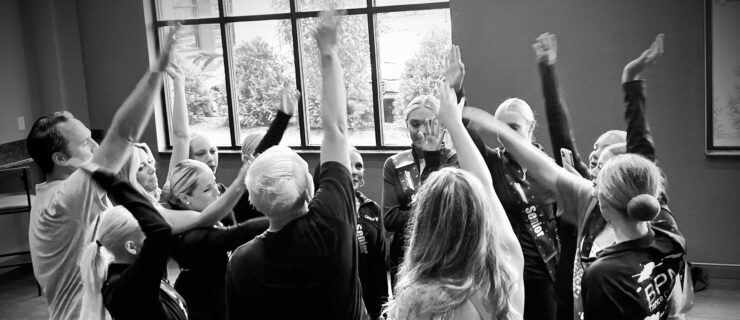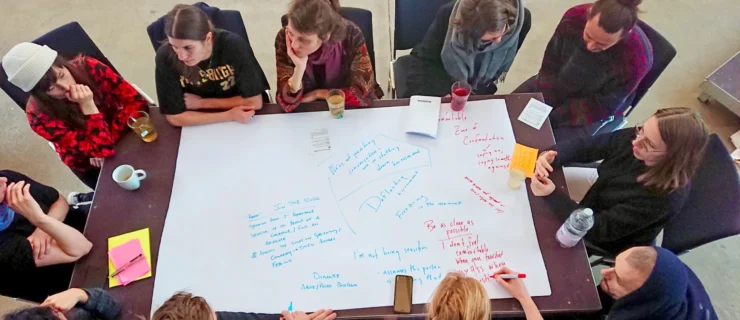Should Dancers Try Intuitive Eating?
It sounds easy: Eat when you’re hungry and stop when you’re full. This is the straightforward philosophy behind intuitive eating. But when a multitrillion dollar wellness industry is paired with the stringent and often unrealistic demands of the dance industry, listening to your body can become fraught.
We know that dieting can lead to feelings of anxiety, fear and shame around food. Following strict food rules is also a common risk factor for developing eating disorders.
Intuitive eating rejects the diet mentality by challenging those food rules, as well as external feeding cues like calorie counts and impractical weight standards. Instead, it focuses on building a physical awareness of appetite, and allows for unconditional permission to eat all foods without guilt or shame. Part of the philosophy’s 10 principles includes learning how to incorporate nutrition science and joyful movement into a balanced lifestyle.
As a certified counselor of intuitive eating, I always encourage dancers to begin experimenting with this approach. But this can be difficult. Since physical activity naturally blunts hunger, dancers might not be able to fully rely on hunger cues for fueling throughout the day. And as athletes, they must learn to eat intuitively while using concepts of sports nutrition to fuel their body’s increased physical demands. Doing this without obsessing over it can be difficult if a dancer struggles with perfectionism.
Nonetheless, using the intuitive approach can lessen a dancer’s mental load around food, allowing dancers to focus more on improving their technique and expanding their artistry. When we eat intuitively, we develop a mind–body connection that enables us to fuel our physical performance and satisfy our mental well-being. A nonjudgmental curiosity builds our trust around food. Most of all, it promotes sustainable habits that support longer careers.
So how can you start eating intuitively?
Step away from diet culture. Unfollow the “eat less” messages of our diet-obsessed world by reassessing your goals: If they’re weight-focused, reprioritize your attention on your abilities in class, your strength and endurance.
Grant permission around all foods.
Do you currently follow strict rules around eating? Are you labeling specific foods as “good” or “bad”? This mindset prevents you from truly building trust with your body.
Learn about your body’s cues using mindful-eating techniques.
Despite our wired world, proactively signing off during mealtimes will enable you to become more in tune with hunger and fullness. This work often involves deeper exploration, especially if habits exist around “cleaning your plate” to avoid food waste.
Build a flexible routine rather than a strict schedule.
A proactive fueling plan is key to balancing energy levels and preventing extreme hunger. Planning ahead for busy days might not be 100 percent intuitive, but it will allow for practical fueling during times when you need it most.
Welcome judgment-free discomfort.
Acknowledge negative emotions and experiences, instead of using food to numb them. While it’s okay to eat when feeling stressed, bored or sad, realize that turning to food as a coping mechanism only offers temporary relief and will not solve your original problem.
Stop striving for perfection.
Food is fuel. It’s also the basis for life experiences. Allow your body to dictate its needs. Obsessing over portion sizes and “healthy” choices leads you further from building trust with your body.





